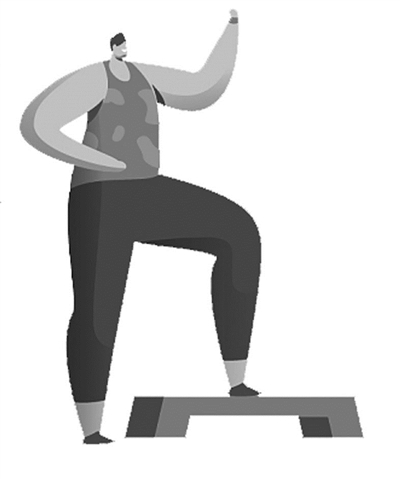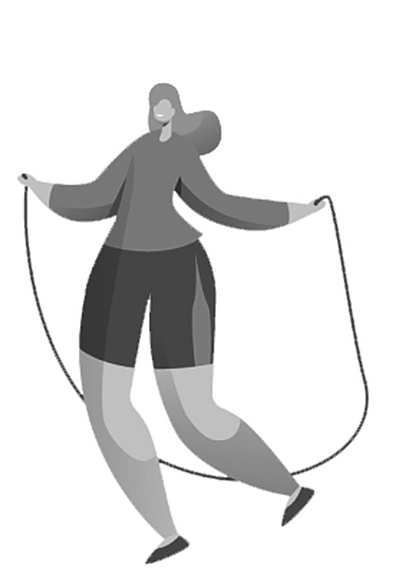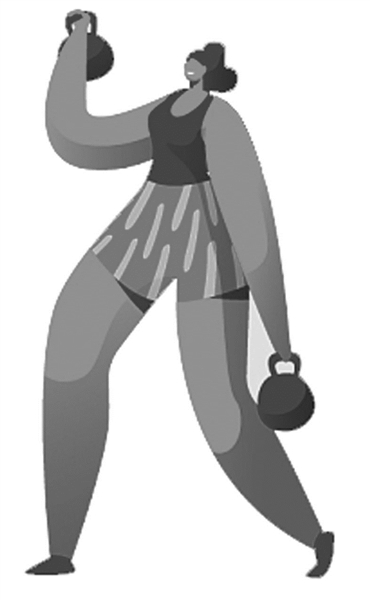




Facing the haunting Covid-19, more and more people realize that they must take the initiative to improve their immunity. Exercise and fitness is undoubtedly one of the most popular choices. In addition to keeping fit, from shining vest line, touching navel with backhand, to drying A4 waist, showing body has also become the driving force of fitness people’s efforts. However, although exercise is good, don’t use too much force, otherwise it is easy to accidentally hurt the kidney.
The real case tells you that excessive fitness "brings trouble" to the kidney.
Women are sent to the rescue room for squats. "Squats" is a common means to test their physical fitness, and it is not uncommon for them to go to the hospital because of excessive squats. Miss Yang participated in the company’s outward bound training. She usually didn’t do much exercise, but in order to perform well, she did hundreds of squats in one breath, which surprised her teammates and opponents. However, for this honor, Miss Yang also paid a painful price. On the second day after exercise, she felt sore all over, and her urine color was like strong tea. She was rushed to the hospital by her family. Emergency tests found that the creatine kinase in her body exceeded the normal value by more than 1,000 times, and rhabdomyolysis was diagnosed and rescued.
Push-ups for boys with renal failure Push-ups are the most common exercise to exercise physical strength and endurance, and people do push-ups when they disagree. Mr. Chen, 23, and several friends PK push-ups, initially agreed to do 80, but the result was not a winner, "continue to compare." Fifteen minutes later, the big guys were defeated one after another, leaving only Mr. Chen to stick to the end. At that time, Mr. Chen only felt a little sore in his arm. The next night, his body began to ache, his arm was difficult to lift, and his urine became darker. Because of his busy work, he didn’t pay attention to it. On the fifth day, Mr. Chen found that the symptoms became more and more serious, his whole body was sore and weak, and his urine was like soy sauce. After being taken to the hospital by ambulance, the doctor found that his kidney function had been damaged.
The above two cases belong to non-traumatic fatigue rhabdomyolysis caused by excessive exercise, which refers to a group of clinical syndromes that all kinds of excessive exercise lead to skeletal muscle injury, myolysis and destruction, and skeletal muscle cell contents (such as enzymes, potassium, phosphorus, creatinine and myoglobin) are released into the blood circulation. In severe cases, it is often complicated with acute renal failure and even multiple organ dysfunction.
These symptoms indicate that the amount of exercise exceeds the standard.
Rhabdomyolysis is characterized by muscle involvement such as limb pain, tenderness, swelling and weakness after a large number of exercises, as well as inflammatory reactions such as fever, general fatigue and increased proportion of white blood cells and neutrophils. Judging from the appearance of the patient’s urine, it is brown or soy sauce-colored urine. About 30% of this disease will have acute kidney injury. When the kidney injury is serious, oliguria, urine and other azotemia’s manifestations can be seen.
Therefore, it is recommended that you rest for more than 24 hours after a lot of exercise, but your muscles are getting sore and tired, and your urine is getting darker and darker. You must go to the hospital immediately. Acute renal failure is likely to result from the continuous progress of the disease. Acute renal failure caused by excessive exercise, most of them can recover completely if they go to the hospital in time. If they see a doctor without urine, it will be too late, and the damaged renal function may be irreversible.
How to judge excessive exercise and what are the signs of rhabdomyolysis?
Symptom 1: After normal exercise, it is mild muscle soreness, and pressing muscles will not cause pain. If you have obvious muscle pain, soreness and tenderness after exercise, you must be vigilant.
Symptom 2: After normal exercise, people will become refreshed, while excessive exercise will make people weak and tired.
Symptom 3: Normal urine is clear and slightly yellow in color. If urine is like strong tea and soy sauce, you need to be alert to rhabdomyolysis.
Remember these five points to guard against sports injury "kidney"
In the process of daily fitness and exercise, we can prevent kidney injury by grasping the following five points:
1. Exercise should be gradual, which requires proper warm-up. Intense exercise and sudden exercise after a long period of inactivity are the most likely to cause injuries.
2. Exercise according to your ability. There is no obvious discomfort such as fatigue, shortness of breath and chest tightness after the exercise. On the contrary, it means that you exercise too much.
3. Protect the digestive system. Attention should be paid to protecting the gastrointestinal tract when exercising at night, and the interval between exercise time and meal time should be at least one hour. After exercise, it is not appropriate to drink plenty of water immediately, and the method of "drinking less for many times" should be adopted.
4. Manage chronic diseases. The trend of rejuvenation of chronic diseases is becoming more and more serious. Many young friends are busy with their work and don’t pay enough attention to their own physical condition. Patients with chronic nephritis, hypertension and diabetes need to review their tests regularly and formulate their own exercise methods according to the test results.
5. Pay attention to balanced nutrition. The way of nutritional supplement after exercise varies from person to person, and patients with chronic diseases such as hypertension, diabetes, liver disease and kidney disease can’t take a lot of protein powder.
Text/Ren Jianwei Gao Tongxin (Aviation General Hospital)